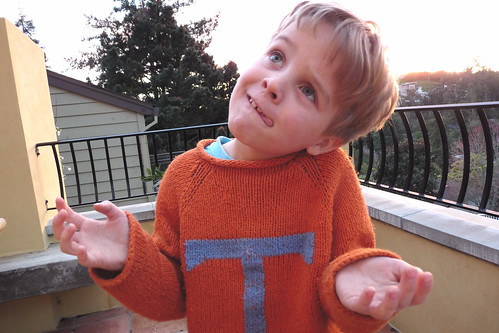The next installment in My Year of Excellent Essayists.
Are you up for this? Notes on a sixteenth-century essayist? Before you click away, note that I’ve added a few marginally related photos to hold your interest.
Michel de Montaigne (1533-1592) is widely regarded as the father of the essay. The word essay originated in the term Montaigne used to title his writings: essais, which is French for attempts, or trials. My Oxford English Dictionary says that the early essay was considered unfinished, “an irregular, undigested piece”. A musing.
I certainly didn’t study Montaigne in the few weeks I allotted for him; I merely exposed myself to him. (Please dismiss the image of me in a trench coat standing before an old French guy.) I read him because I felt I ought to; I surprised myself by enjoying it. Somewhat.
A few qualities of the personal essay that can be traced back to Montaigne:
Essayists deprecate themselves to make up for how much they talk about themselves.
In his introduction to The Best American Essays 2008, Adam Gopnik writes, “The essayist, like his friend the hangman, is expected to apologize for his profession even as he practices it…Alone among writers, he is assigned the self-deprecatory cough, the defensive cringe, the Mister Modesty shrug.” Something has to make up for all those I’s. Way back in the 1500’s Montaigne was pandering to his readers by putting himself down:
“Whoever is in search of knowledge, let him fish for it where it dwells; there is nothing I profess less.”
On quoting others: “For I make others say what I cannot say so well, now through the weakness of my language, now through the weakness of my understanding.”
“The parts I most esteem in myself derive more honor from self-criticism than from self-recommendation…But when all is summed up, a man never speaks of himself without loss. His condemnation of himself is always credited, his praise of himself discredited.”
Humor can make an essay more enjoyable.
Is it just me, or do you sometimes forget that people long ago were funny? I can be reading Austen or E. M. Forster, and I’ll find myself thinking, surprised: This is funny! Of course people in the 1500’s were funny—one only has to read a half-page of Shakespeare to realize that. Still, reading Montaigne’s old-fashioned prose, I was often startled to find myself thinking it again: This is funny!
“If I encounter difficulties in reading, I do not gnaw my nails over them; I leave them there, after making one or two attacks on them.”
On learning better from bad examples: “A good rider does not improve my seat (my riding form) so much as an attorney or a Venetian on horseback.”
“…agreement is a very tiresome quality in conversation.” (I’m not sure he meant this to be funny, but I found it funny.)
Essays are a hodgepodge form—a quote and a digression here; an anecdote, an argument, an abstraction there. Logic and emotion are thrown in by random fistfuls. Montaigne reveled in this.
Leaping and gamboling.
“I go out of my way, but rather by license than carelessness. My ideas follow one another, but sometimes it is at a distance, and they look at one another, but with a sidelong glance. …I love the poetic gait, by leaps and gambols. It is an art, as Plato says, light, flighty, and daemonic.”
Essayists often set out to raise questions, not necessarily to answer them. They want their readers to wonder, to come up with their own answers.
“If other men observed themselves attentively, as I do, they would find themselves, as I do, full of inanity and nonsense. Get rid of it I cannot without getting rid of myself. We are all steeped in it, on as much as another; but those who are aware of it have a little the better of it—still I don’t know.”
“…such frequent cutting up into chapters, which I used at the beginning, seemed to me to break and dissolve the attention before it was stirred…In addition perhaps I have some personal obligation to speak only by halves, to speak confusedly, to speak discordantly.”
Okay! Check off Montaigne with a flourish! And in his honor I will put myself down and note that my study of him was rather pathetic. Moving on…
the plan for march:
I’m reading the work of Sue Hubbell. She’s probably not so well-known as most of the essayists I plan to read–but she wrote a wonderful book called A Book of Bees, about a year in her life as a commercial beekeeper. Since we’re planning to start keeping bees ourselves this spring, I figured that rereading her book would be doubly useful: I can study her writing style, as well as learn a few things about bees. I’ll read some of her other essays as well.
And if you’ve read this far down, you deserve a Best Blog Reader Ever award. You indulged me with Montaigne. You’re a peach.





Well, now I feel a little more empowered to essai Monsieur Montaigne myself. And yes, your observation that “something has to make up for all those ‘Is'” really hit home — remind me sometime to tell you about my father in law’s response to my first paid-for piece of writing, which was, of course, a personal essay. . .
And hooray on the bees. You’ll do it impeccably, I assume.
The photos crack me up. If they make a Calvin and Hobbes movie Mr. T is ready to star in it. And I really enjoyed reading about Montaigne.
LOL! i think Mr. T would charm the rhetorical pants off Mr. Montaigne!
I will relate to Sue Hubbell more easily because of our shared interest in bees; but I give you credit for studying the 1st essayist’s essays; and Mr. T’s contribution was invaluable.
Stefaneener: Aw, not only were you the first to respond, but it seems you actually read the whole post, since you caught the beekeeping reference. I have such fabulous readers! (And you know I’ll be picking your beekeeping brain soon.)
Susan: Ha! I’ve told Mr. T that he reminds me of Calvin, but it wasn’t until I read your comment and looked at the first photo that I caught the uncanny resemblance.
Melissa: Yes, if nothing else, Mr. T and Montaigne might enjoy talking each other’s ears off.
Kristin: Yep, I’ve been wanting to share Sue Hubbell with you. Hopefully I’ll find some lovely beekeeping lines.